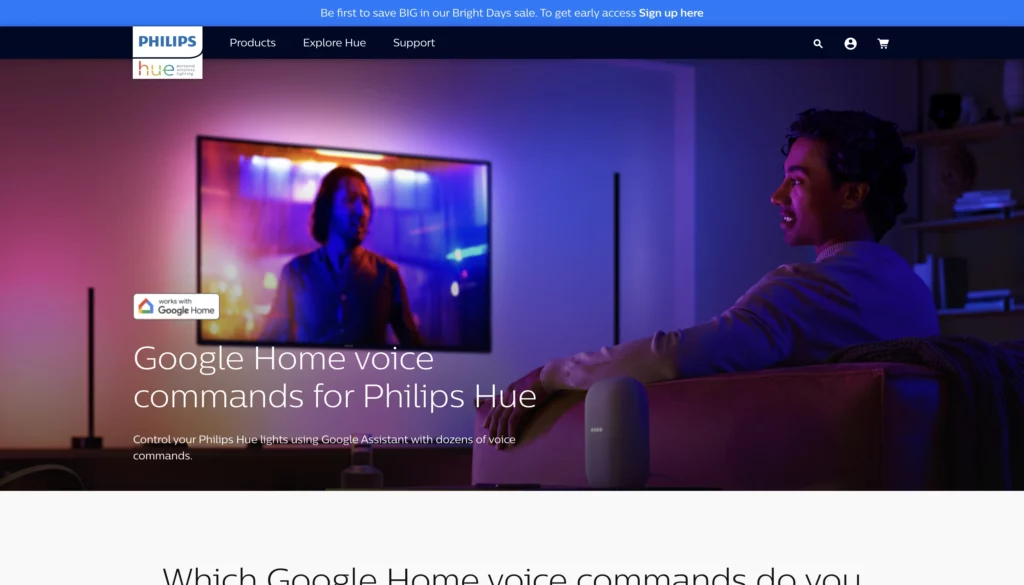In the era of digital transformation, voice search has emerged as a game-changer, revolutionizing the way people interact with technology. With the increasing popularity of voice assistants like Siri, Alexa, and Google Assistant, optimizing your website for voice search has become essential for maintaining a competitive edge. Now, when we want to know how the weather is today we don’t go searching the internet or opening a weather app.
What we do is say “Hey Siri, how’s the weather today?”
Websites like YouTube also include Voice Search on the right side of their search box, allowing users to say what they want to watch in many offered languages. Although it seems that Voice Search feels irrelevant in today’s technology, it cannot be denied that the future in technology lies within voice commands. In this blog, we will explore the rise of voice search and its use cases and also the impact of voice search on SEO and provide actionable strategies to optimize your website for voice assistants.

Understanding Voice Search
Voice search is the technology that allows users to perform searches or execute commands using spoken language instead of typing. It utilizes natural language processing and artificial intelligence to interpret and respond to user queries. Voice assistants, powered by voice search technology, have become integral parts of smart devices, smartphones, and even cars. In addition to its widespread use on smartphones and other devices, voice search has become an integral part of smart home technology.

Today, voice searches account for controlling lights in houses with voice assistants like Amazon Echo (powered by Alexa) and Google Home (powered by Google Assistant). Many products like Philips Hue offer voice commands in order to switch on and off or even change colors. This gives the ability to users to control various aspects of their homes simply by speaking commands.
The Rise of Voice Search
The adoption of voice search has skyrocketed in recent years. Users find it convenient, hands-free, and faster than traditional typing. According to research, it is estimated that by 2024, over half of all searches will be conducted through voice. This shift in user behavior has significant implications for SEO and it is why your website should be optimized for Voice Assist.
Optimizing for Voice Search
This shift towards voice search has significant implications for website owners and digital marketers. Optimizing websites for voice search is becoming increasingly important to ensure that businesses can effectively reach their target audience and stay ahead in the competitive online landscape.
Whether you are a business owner, a marketer, or a website administrator, understanding the intricacies of voice search optimization will empower you to adapt your digital strategy and capture the attention of the growing number of users relying on voice assistants to find information.
Voice search brings about unique challenges and opportunities for SEO. Traditional search engine optimization focused on optimizing for typed queries, but voice search introduces new considerations. Now that we understand the implications of voice search on SEO, let’s explore some actionable strategies to optimize your website for voice assistants:
Conversational Keywords
Voice search queries tend to be more conversational and longer than typed queries. Users ask questions or provide detailed instructions to voice assistants. When we type, we are used to typing only keywords of what we want to search, such as “Restaurant Bangkok”. On the other hand, we tend to use full sentences in detail when we speak, it usually goes like this: “Where can I find Japanese Food in Bangkok”. Voice searches are usually longer so optimizing for long-tail and conversational keywords can help your content align with voice search queries.
Featured Snippets

Voice assistants often read out featured snippets or “position zero” content in response to user queries. For those who don’t know what featured snippets are, here is the answer from Google. Structuring your content to provide concise, informative answers can increase the chances of your content being featured in voice search results. Finding keywords that are often used and applying it to the snippets can also help your page appear when voice searched.
Local SEO and Google Voice Search
Google voice search is often location-based, with users seeking information about nearby businesses or services. One of the reasons why Local SEO is relevant to Voice Search is because the language that it is used to search. Different countries have different languages, so Local SEO will ensure that your business appears. Optimizing your website and online listings for local search is crucial to capturing Google voice recognition queries related to your area. Ensure your website and online listings are optimized for local SEO. Include your business name, address, phone number, and other relevant information consistently across all platforms.
Mobile Optimization
Voice search SEO is heavily reliant on mobile devices. Ensuring your website is mobile-friendly and loads quickly is vital for providing a seamless experience to voice search users as many voice searches took place in mobile devices. One of the techniques that websites can execute is Mobile-First Design.
Focus on Conversational Content
Create content that answers frequently asked questions and addresses user queries in a conversational tone. Anticipate the questions your target audience may ask and provide clear, concise answers within your content.
Long-Tail Keyword Optimization
Research and incorporate long-tail keywords that align with voice search queries. Tools like Google’s Keyword Planner and Answer the Public can help identify relevant long-tail keywords.
Structured Data Markup
Implement structured data markup, such as Schema.org, to provide search engines with structured information about your content. This helps search engines understand and interpret your content more accurately.
Aim for Featured Snippets
Structure your content to provide clear, concise answers to common user queries. Use bullet points, headings, and tables to present information in a scannable format that is more likely to be featured as a voice search result.
Conclusion
Voice search is transforming the way people search for information and interact with technology. Optimizing your website for voice assistants is crucial for staying ahead in the digital landscape. By focusing on conversational content, long-tail keywords, structured data markup, local SEO, website speed, and aiming for featured snippets, you can enhance your website’s visibility in voice search results and provide a seamless user experience.
Yes Web Design Studio
Tel. : 096-879-5445
LINE : @yeswebdesign
E-mail : info@yeswebdesignstudio.com
Facebook : Yes Web Design Studio I Web Design Company Bangkok
Instagram : yeswebdesign_bkk
Address : 17th Floor, Wittayakit Building, Phayathai Rd, Wang Mai, Pathum Wan, Bangkok 10330 (BTS SIAM STATION)








